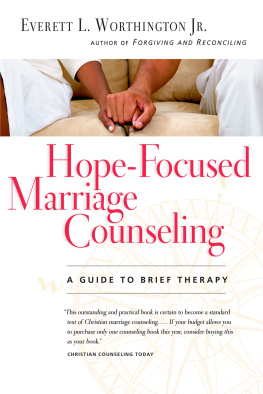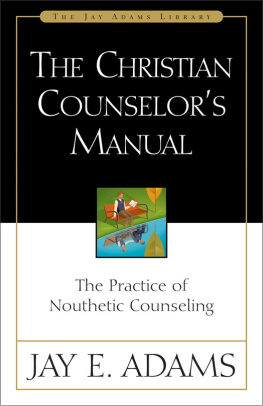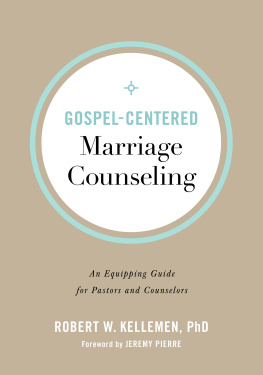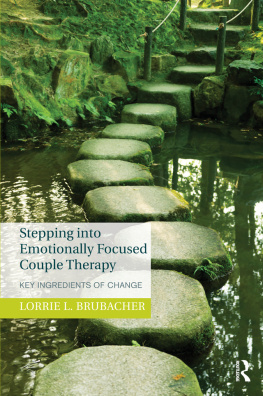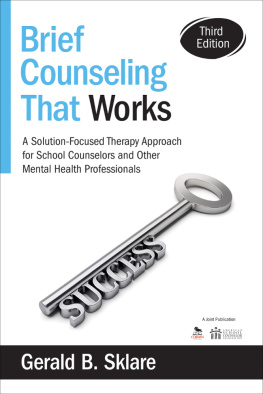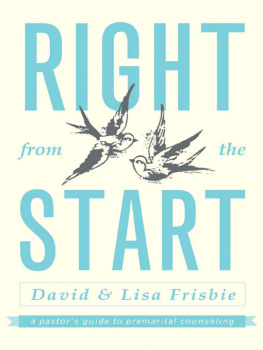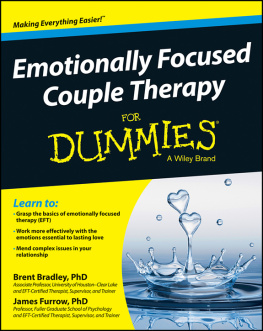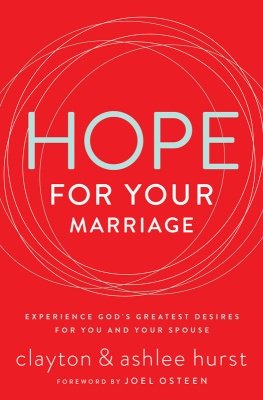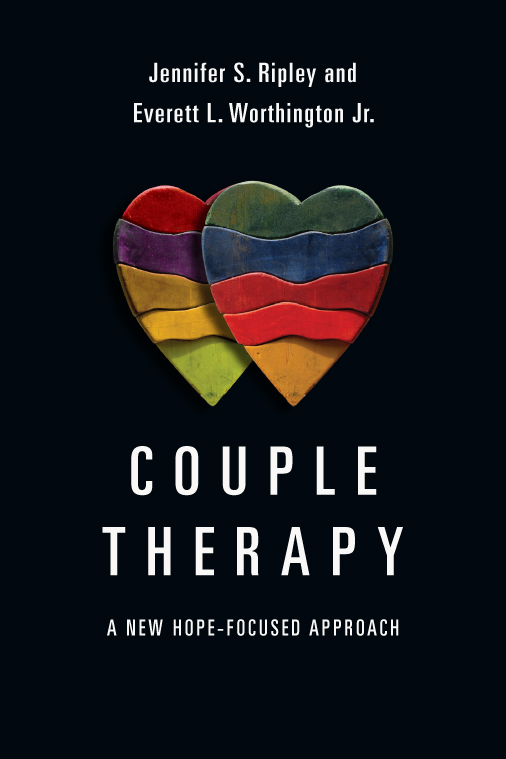List of Interventions

















List of Worksheets and Handouts
Why You Need This Book
P erhaps you are one of the over 50,000 counselors who have used either the 1989 Marriage Counseling: A Christian Approach for Counseling Couples or the 1999 Hope-Focused Marriage Counseling: A Guide to Brief Therapy (or its 2005 revision). Or perhaps you came across the hope-focused couple approach (HFCA) to couple enrichment through the research that has made it one of four treatments evaluated as empirically supported (Jakubowski, Milne, Brunner & Miller, 2004). Or perhaps you are new to this approach. In any case, this book will present a theoretically grounded, strategic approach to counseling couples that we have developed with Christian principles and have practiced and studied scientifically.
We call this an approach because it is applicable to couple counseling and couple enrichment. In fact, even educated lay people could benefit by the many assessment tools and discussions for improving marriage. So this book might actually be a rarity in publishinga professional book that could benefit experienced and novice psychotherapists, counselors, pastors and lay counselors, but could also benefit married couples. We believe it could give many ideas to active researchers as well. We address the book to the practicing couple counselor. Many have told us that, along with the practical interventions, it is the integrated, eclectic theoretical framework that is most friendly to combining with their own current system of couple therapy. This new book has a much deeper theory, grounded in other established theory and research in attachment and intimate bonds. We think youll love the expanded and deepened hope-focused couple approach theory in this book.
Within these pages, youll find over 75 new practical interventions you have not seen before. But this book is more than simply a new bag of tricksalthough you might think that alone is enough to merit reading it. For this reason we suggested, and InterVarsity Press agreed, that this book was not a mere revision of Hope-Focused Marriage Counseling (1999, 2005). Rather it represents its own new approach. True, it builds on the previous book, but whether or not you are experienced with the approach described there, youll find this to be a strong addition to your theoretical and practical tool kit. If you are just starting to practice the hope-focused couple approach, youll quickly learn the theory in its expanded form, and youll learn many practical interventions.
The practical interventions will enrich your counseling repertoire. Hope-Focused Marriage Counseling had about 200 practical step-by-step interventions, which (along with the integrative theory) is what most readers said they appreciated most. Perhaps the strongest portion of this present book is the variety of new interventions we have created and couple-tested since the publication of Hope-Focused Marriage Counseling. However, we also have been discerning in what we have included from the last book. Over 15 years of experience have accumulated since the original 1999 version was pennedactually more, given the delay between the writing and publication of any book. That represents a lot of clinical experienceand not just our own, but that of the thousands whom we have trained. We have strongly tested the original interventions and have identified many essential ones that have worked well with countless couples. We call these the hope-focused classics (and designate them with the icon  ). We include enough of them to maintain the power of the hope-focused couple approach that inheres in those classic interventions. When we describe them, we discuss new understandings of them based on 15 years of working with couples. We believe that we have increased the therapeutic power of the approach by including many new interventions and by referring you back to Hope-Focused Marriage Counseling (2005) for other hope-focused classic interventions that we did not have enough space to include.
). We include enough of them to maintain the power of the hope-focused couple approach that inheres in those classic interventions. When we describe them, we discuss new understandings of them based on 15 years of working with couples. We believe that we have increased the therapeutic power of the approach by including many new interventions and by referring you back to Hope-Focused Marriage Counseling (2005) for other hope-focused classic interventions that we did not have enough space to include.
We have also described and illustrated actual cases (disguised, of course). This allows you to see how over 75 of these all-new and hope-focused classic interventions are integrated into entire cases. Thus, the two books together can form a set of about 300 practical interventions with couples, organized within their own theoretical framework and illustrated with many cases. We also include all new assessment instruments and worksheets for couples and other resources that complement (not duplicate) Hope-Focused Marriage Counseling. And even if you already have a theoretical approach you are comfortable with, this book will pass the compatibility test. The interventions and cases will enrich your own theoretical approach.
Where did all of these resources come from? Many came as a result of feedback from the people who bought over 50,000 books and tried the methods with their clients. Many came from our own supervision of couple therapists or our own practice with couples. Many came from experiences gained at a community clinic that Jen established at Regent University (see hopecouples.com ), including the supervision, training and research we have done there. Many came from Evs traveling, speaking and talking to counselors and through an active research program at Virginia Commonwealth University, especially within the forgiveness and reconciliation parts. We believe that if you read one of the two previous books, youll want this one to expand greatly your clinical acumen. We believe if you have yet to read those books, after you read this one, youll want to go back and complete the set. We welcome you and invite you to walk with us through this new hope-focused couple approach.
Part One
A THEORY OF CHANGE


